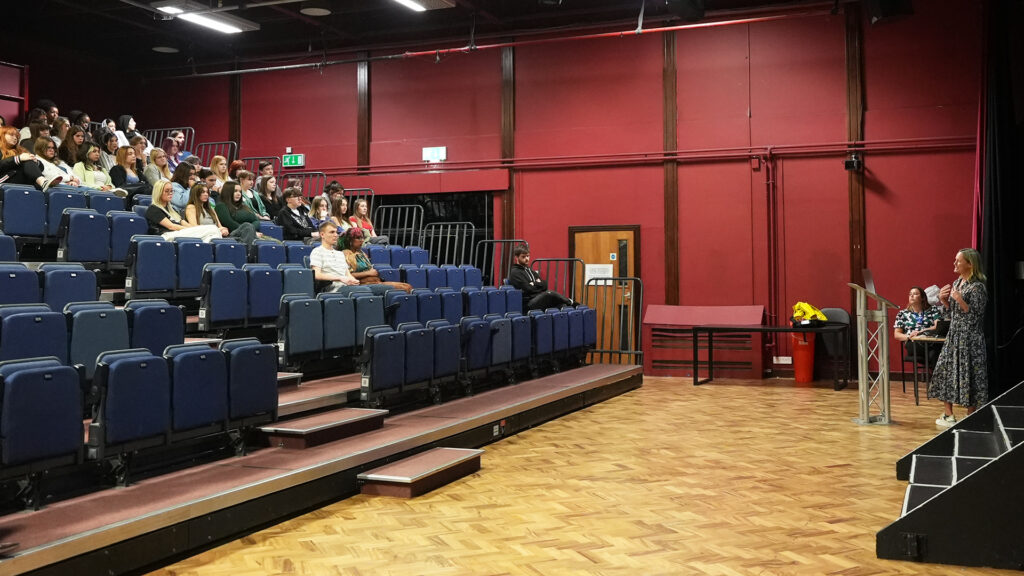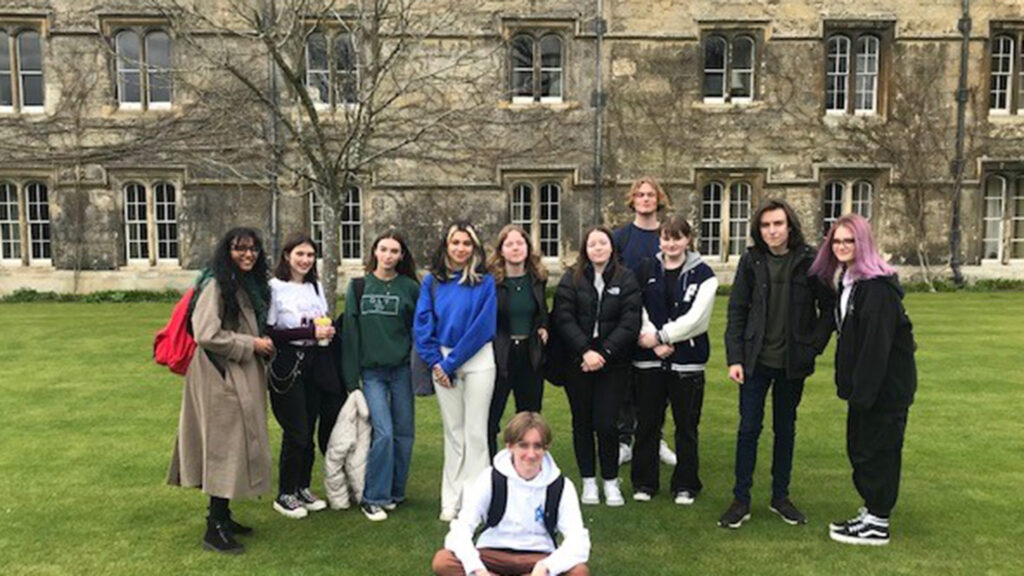DO NOT DELETE OR EDIT THIS ROW OR ITS CONTENTS

Barack Obama once said: ‘The world has never been healthier, wealthier or less violent’. Despite this, nearly 1 billion people in the world today live in poverty, over 14 million of whom live within the UK. Do you ever wonder why inequality continues to exist in the world? Have you considered how gender, religion, and ethnic backgrounds open or close opportunities in your life? Sociology makes you look at things in new ways and helps you better understand the world in the 21st Century.
The World Sociology pathway explores global inequality, traditional gender roles and cultural practices and how is globalisation changing the level of inequality across Africa and Asia.
What will I study in Sociology (World) A-level?
A Level Sociology:
Year 1:
- Socialisation & Culture
- Youth Cultures
- Media
- Sociological Research Methods
Year 2:
- Social inequality
- World Sociology (International Development)
- Within this World Sociology (International Development) unit you will explore:
- How helpful is foreign aid in reducing global inequality?
- How do traditional gender roles & cultural practices explain inequalities within & between nations?
- How is globalisation changing the level of inequality across Africa & Asia?
- How can we increase the status of minority groups within society?
- What role do governmental & non-governmental organisations play in reducing inequality?
- How does sociological theory help us explain the inequalities in the world?
Entry Requirements
5+ GCSEs at Grade 4 or above from the core subjects, including English Language and Maths.
A Grade 5 in English Language is recommended.
How will I learn?
Sociology lessons will consist of engaging learning activities ranging from class discussion & group work to independent research tasks, thus developing your interpersonal and academic skills. At the end of year one you will have the opportunity to design your own sociological research on a theme of your choice. You will develop important transferable skills such as your ability to work independently and undertake secondary research, which are desirable for both university (should you choose to go) and the workplace.
How will I be assessed?
The course is assessed through 100% exam.
You will sit three exams at the end of the second year.
Component 1: Socialisation & Culture - 2hr 30mins exam (worth 40%)
Component 2: Methods of Sociological Enquiry - 1hr 45mins exam (worth 20%)
Component 3: Power & Stratification - 2hrs 30mins (worth 40%)
Any trips?
Trips an important way of bringing life to the ideas discussed in the classroom. We run a trip to St.Pauls in Bristol to explore topics such as gentrification, the sociology of grafitti and multiculturalism. We also offer a range of university visits, both to hear the latest sociological research but also a chance to explore the idea of studying Sociology at university.
Are there any costs involved?
You will be required to buy a course booklet for each unit. The total cost of these booklets over the two years is approx. £20.
A field trip/visit will cost approx. £15-20. These are usually optional to students.
Device Requirements
MacBook (8GB RAM minimum | M2 or above)
or
Windows laptop (8GB RAM minimum | Ryzen 3 or Intel i3 12th Gen or above)
If you already own a device that meets the technical requirements of your course, you are welcome to bring it with you to college.
If not, more information on a convenient rental and help-to-buy scheme designed specifically for Cirencester College students is linked below.
FAQs
Sociology is much more concerned with how the society around us impacts our actions & behaviour. For example, within the World Sociology unit in Yr2 we're interested in how the media portrays low income countries (LICs) - does it create an image of helpless nations that are dependent on the Global North for help? Are the actions of national & foreign governments sometimes part of the problem rather than part of the solution to addressing poverty & inequality across the globe? In contrast, A Level Psychology is much more interested in what goes on in our heads, it's more focused on an individual's mind & their behaviour.
What can Sociology (World Soc pathway) lead on to?
There are endless specific careers linked with Sociology (please see below), however we're eager to ensure you develop a range of 'transferable skills' that you can draw upon throughout the rest of your career, regardless of whether Sociology becomes your career goal or not.
These skills include:
•Designing & conducting research
•Analytical skills
•Cross-cultural understanding/empathy
•Ability to consider different opinions
•Presentation/debating skills
•Evaluative skills
•Reading & critiquing information
Specific careers linked to Sociology (World) include:
•Youth worker/social worker, international aid/development worker, marketing/market research, crime analyst, police officer, probation service, law firms, human rights advocacy, welfare rights advisors, criminal justice system, education (teaching), researcher, refugee support (& many, many more).
A particular growth sector for graduates in Sociology/International Development/Geography-related subjects is the area of Corporate Social Responsibility (CSR). This is the process whereby companies take greater responsilbity to minimise the effects of their business on communities and/or the environment - in effect, aiming to be more sustainable. If you consider McDonald's 'Ronald McDonald Houses' or Costa's 'Costa Foundation', these are examples of CSR at work. Even the large tobacco companies will have CSR policies!
Students interested in this World Sociology pathway will have a strong understanding of global issues & so this career route may be of particular interest.
Much of the A-Level programme is the same, regardless of whether you do the Crime or World Sociology pathway. It's only in Yr2 when things differ slightly
We need you to be on the correct pathway within the first two/three weeks of the Yr1 course. After which point, you won't be able to swap.
If you're unsure, take a look at the Sociology video on the college website, this runs through the key aspects of each. Alternatively, one of the Sociology team will happily talk you through the differences at enrolment.
For many students, this is the less familiar pathway, but almost without exception, it does really grab them!
If you're interested in environmental issues &/or social injustice, this is likely to be the one for you.
A useful question to ask is "How did you enjoy Geography at school?" - Most students who opt for this pathway have likely found geography interesting, particularly the more human geography aspects. They won't necessarily have studied GCSE Geography, but they enjoy learning about different cultures & countries.
Whilst the Crime & Deviance pathway is very much focused on the UK, the World Sociology unit, (as the name suggests) offers an insight into the wider world.
If you consider many of the challenges facing the world in the 21st Century, issues such as climate change, conflict, terrorism, increasing isolationism, immigration, issues over foreign aid - these are all issues that link in with the World Sociology unit.
This pathway has really strong links with A Level Politics, A Level Economics & A Level Geography. For those students who do one or more of these courses alongside the World Sociology pathway, they really do become experts! Having said that, we also have students who do Textiles, Photography & Sociology.
Again, the two pathways are exactly the same in Year 1. So, every student will study:
Socialisation & Identity
Youth
Media
Research Methods.
It's only in Year 2 where the two pathways differ.
For 90mins a week, every student will study Stratification.
For the other 3-hours a week, students will study either Crime & Deviance or World Sociology.
Again, if you work hard, you'll leave with an A Level in "Sociology"; it won't specify which pathway.
No - the course does not involve lots of maths.
Other than interpreting the odd graph, there is very little maths involved.
Yes - the course does involve essay writing. In fact, this is the main form of assessment. You'll do three exam papers & almost all of the questions are essays. Your English GCSE performance is often the best indicator of how you will likely perform on this essay-based A level. However, in the same way we will develop your sociological understanding throughout the course, we also need to develop your exam technique & essay style.
In Sociology, we write & argue through sociological theories, such as Marxism, postmodernist, functionalism etc. We'll introduce you to these theories over the course of the first few weeks.
If you like things being right or wrong, then this is not the course for you! Sociology is all about contrasting opinions & perspectives.
By far the biggest influence on how well you will do on this course, is your own motivation & interest in the subject matter. After all, if you're interested in something, you are far more likely to work harder at it. The course is challenging, but in a really good way. It will get you thinking!
Awarding Body
WJEC EDUQAS
Available As
[56 UCAS pts. available]

Add to Application
What can I do after I have taken this course?
Available As
[56 UCAS pts. available]

Add to Application

DO NOT DELETE OR EDIT THIS ROW OR ITS CONTENTS
What the students say

”Sociology makes me feel accepted and helps express my thoughts and opinions learning about the norms and values in society. As a class, we often debate and analyse issues and ideas, comparing them to Marxist, Feminism and post-modernist theories.
Kym Williams



















